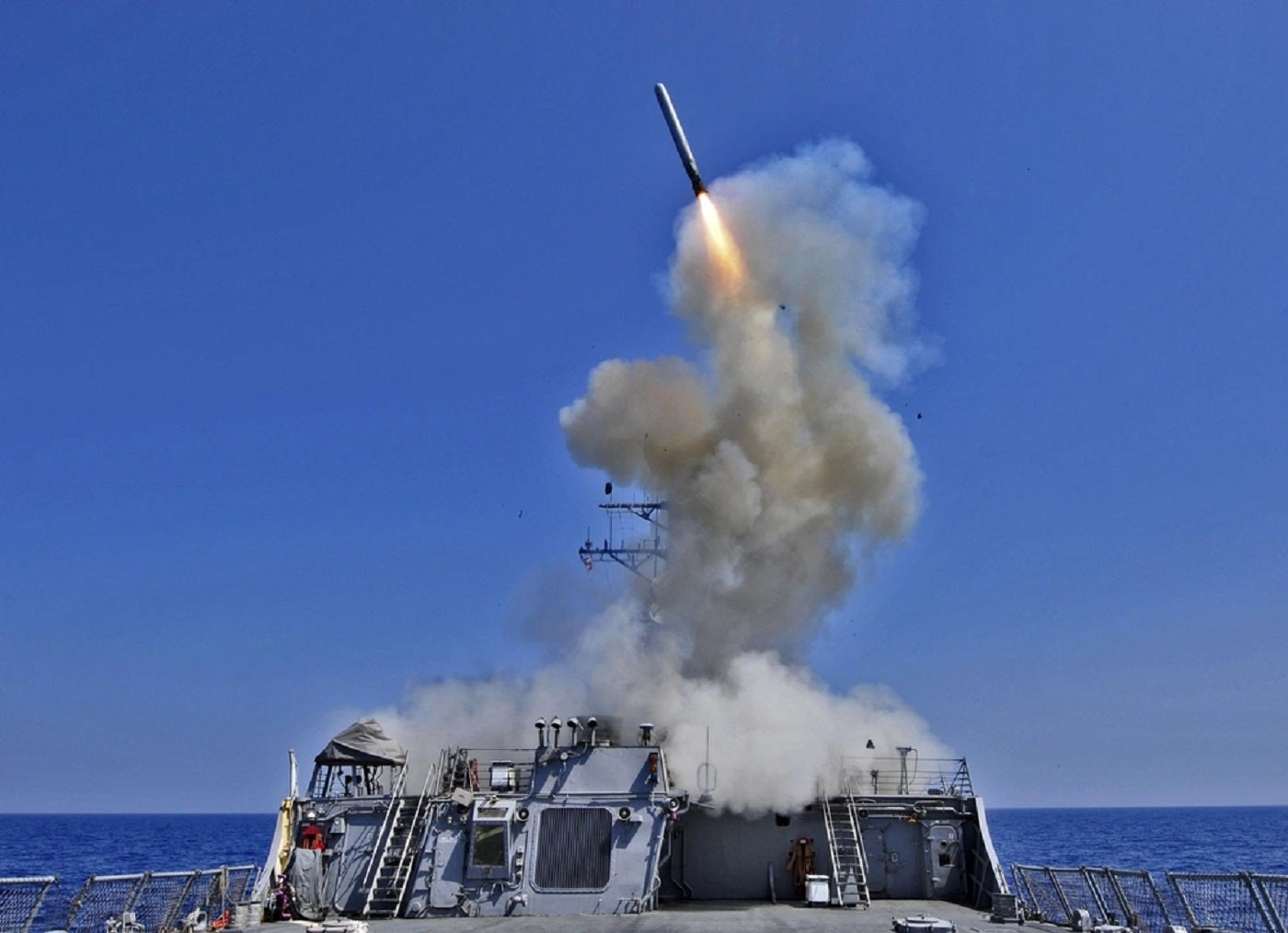
Raytheon Technologies, headquartered in Tucson, Arizona, has secured a contract worth $124.2m to enhance the capabilities of maritime strike tomahawk missiles for the US Navy.
The contracting activity for this project falls under the purview of the Naval Air Systems Command, headquartered in Patuxent River, Maryland. It aims to bolster the missile’s performance by procuring 42 Maritime Strike Tomahawk Seeker (MST) suites, facilitating recertification efforts and strategic installations.
The MST suites will play a role in the Navy’s ongoing effort to upgrade tactical tomahawk missiles through the MST Low Rate Production Three initiative. These seeker suites are a component of the recertification process for the missiles, contributing to their precision and effectiveness in maritime strike operations.
The contract outlines that Raytheon Technologies will carry out the work across multiple locations, with varying percentages allocated to each site and is anticipated to conclude in November 2025. This contract focuses on enhancing the Navy’s capabilities with advanced seeker technology.
According to GlobalData’s “The Global Missiles & Missile Defense Systems Market 2023-2033” report, 22.0% of the North American missiles and missile defence systems market is owned by Raytheon Technologies Corp, which is projected to be the second largest shareholder in the region.
Nations such as Japan and Australia have procured tomahawk missiles from the US. Japan planned to upgrade all eight of its Aegis destroyers to install Tomahawk cruise missiles, and Australia requested a sale of $895m for Tomahawk missiles from the US to boost their maritime capabilities and improve interoperability earlier this year.
On the same day of the contract being announced, it was also announced that the US had awarded contracts to two of America’s largest domestic shipbuilding companies – General Dynamics and HII – to construct nine new flight III Arleigh Burke-class destroyers (DDG 51s) for the US Navy.
This contact bodes well for the acquisition of the Tomahawk cruise missiles as the DDG 51s are armed with 56 Raytheon Tomahawk cruise missiles, with a combination of land-attack missiles with a Tercom-aided navigation system and anti-ship missiles with inertial guidance.
Raytheon Technologies’ selection for this contract underscores the company’s reputation in providing technology solutions to bolster the Navy’s operational readiness and effectiveness in maritime strike missions. As the project progresses, it is expected to contribute to the Navy’s strategic capabilities and enhance its mission success in complex environments.





